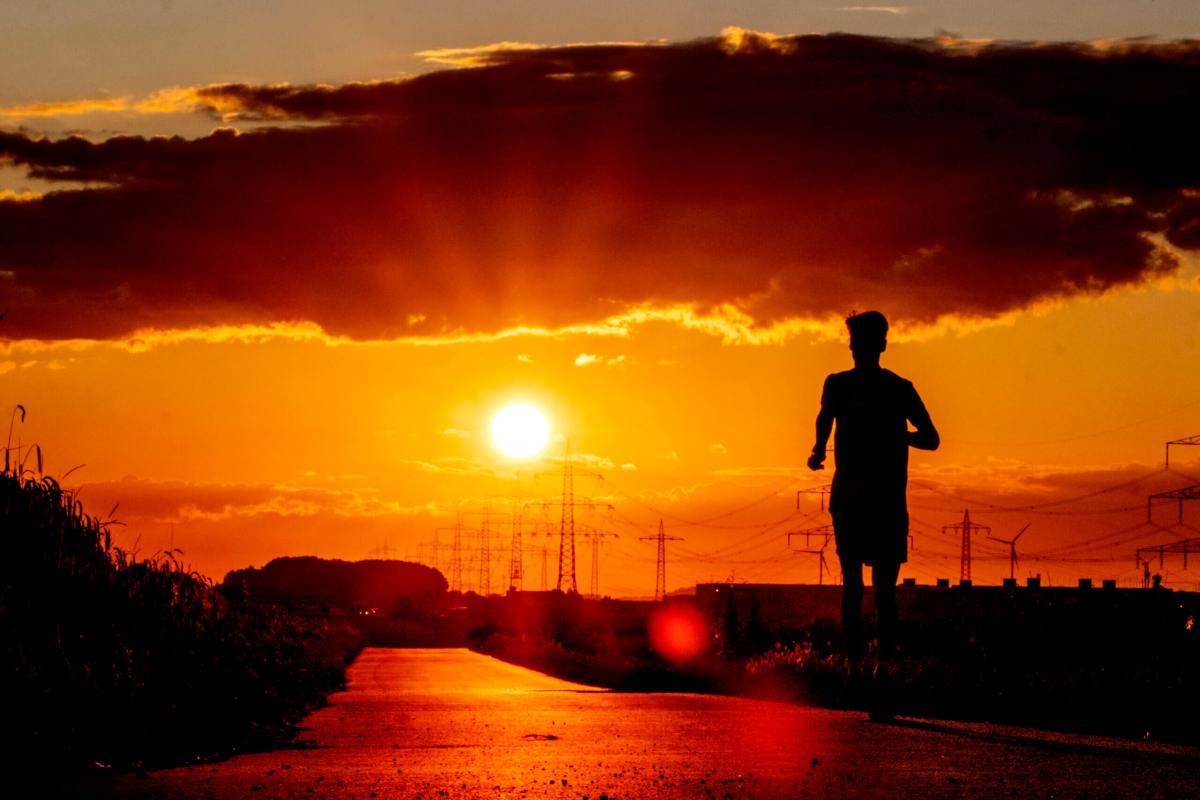WASHINGTON (AP) — July has been so hot thus far that scientists calculate that this month will be the hottest globally on record and likely the warmest human civilization has seen, even though there are several days left to sweat through.
The World Meteorological Organization and the European Union’s Copernicus Climate Change Service on Thursday proclaimed July’s heat is beyond record-smashing. They said Earth’s temperature has been temporarily passing over a key warming threshold: the internationally accepted goal of limiting global warming to 1.5 degree Celsius (2.7 degrees Fahrenheit).
Temperatures were 1.5 degrees warmer than pre-industrial times for a record 16 days this month, but the Paris climate accord aims to keep the 20- or 30-year global temperature average to 1.5 degrees. A few days of temporarily beating that threshold have happened before, but never in July.
July has been so off-the-charts hot with heat waves blistering three continents – North America, Europe and Asia – that researchers said a record was inevitable. The U.S. Southwest’s all-month heat wave is showing no signs of stopping as the heat wave at the end of the week pushed into most of the Midwest and East with more than 128 million Americans under some kind of heat advisory Thursday.
“Unless an ice age were to appear all of sudden out of nothing, it is basically virtually certain we will break the record for the warmest July on record and the warmest month on record,” Copernicus Director Carlo Buontempo told The Associated Press.
United Nations Secretary-General Antonio Guterres pointed to the calculations and urged world leaders to do more to reduce emissions of heat-trapping gases.
“Climate change is here. It is terrifying. And it is just the beginning,” Guterres told reporters in a New York briefing. “The era of global warming has ended; the era of global boiling has arrived.”
Buontempo and other scientists said the records are from human-caused climate change augmented by a natural El Nino warming of parts of the central Pacific that changes weather worldwide. But Buontempo said ocean warming in the Atlantic also has been so high — though far away from the El Nino — that’s there’s even more at play. While scientists long predicted the world would continue to warm and have bouts of extreme weather, he said he was surprised by the spike in ocean temperatures and record-shattering loss of sea ice in Antarctica.
“The climate seems to be going crazy at times,” Buontempo said.
Copernicus calculated that through the first 23 days of July, Earth’s temperature averaged 16.95 degrees Celsius ( 62.5 degrees Fahrenheit). That’s nearly one-third of a degree Celsius (almost 0.6 degrees Fahrenheit) hotter than the previous record for the hottest month, July 2019.
Normally records are broken by hundredths of a degree Celsius, maybe a tenth at most, said Russell Vose, climate analysis group director for the U.S. National Oceanic and Atmospheric Administration.
Usually records aren’t calculated until a week or longer after a month’s end. But Vose, who wasn’t part of the research, his NASA record-keeping counterpart Gavin Schmidt and six other outside scientists said the Copernicus calculations make sense.
Buontempo’s team found that 21 of the first 23 days of July were hotter than any previous days in the database.
“The last few weeks have been rather remarkable and unprecedented in our record” based on data that goes back to the 1940s, Buontempo said.
Both the WMO-Copernicus team and an independent German scientist who released his data at the same time came to these conclusions by analyzing forecasts, live observations, past records and computer simulations.
Separate from Copernicus, Karsten Haustein at Leipzig University did his own calculations, using forecasts that show at best the warming may weaken a tad at the end of month, and came to the conclusion that July 2023 will pass the old record by 0.2 degrees Celsius (.36 degrees Fahrenheit).
“It’s way beyond everything we see,” Haustein said in his own press briefing. “We are in absolutely new record territory.”
Haustein said even though records only go back to the middle of the 19th century, using tree rings, ice cores and other proxies he calculates that this month is the hottest in about 120,000 years, which Buontempo said makes sense. Other scientists have made similar calculations.
“The reason that setting new temperature records is a big deal is that we are now being challenged to find ways to survive through temperatures hotter than any of us have ever experienced before,” University of Wisconsin-Madison climate scientist Andrea Dutton said in an email. “Soaring temperatures place ever increasing strains not just on power grids and infrastructure, but on human bodies that are not equipped to survive some of the extreme we are already experiencing.”
It’s no accident that the hottest July on record has brought deadly heat waves in the U.S. and Mexico, China and southern Europe, smoke-causing wildfires and heavy floods worldwide, said Imperial College of London climate scientist Friederike Otto.
The average temperature being measured is like “the fever temperature that we measure for our planet,” Otto said.
“We are in uncharted territory as far as humans on this planet are concerned, so our records are falling with increasing frequency and that’s exactly what we expect to — and what we’ve been predicting would — happen,” said Texas Tech climate scientist Katharine Hayhoe.
In the middle of some of the worst heat, where Phoenix is now at a record 27 straight days and counting of 110 degrees or higher temperatures, University of Arizona climate scientist Katharine Jacobs said the records are giving humanity a message about reducing emissions of heat-trapping gases from the burning of coal, oil and natural gas.
“Events like this are signposts along a highway we don’t want to travel,” Jacobs said in an email. “It is time to stop playing political games and get serious in order to protect ourselves and future generations.
Jamey Keaten contributed from Geneva and Edith Lederer from the United Nations.


















